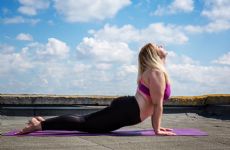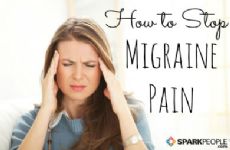|
Editor's Note: Cathy Cram, M.S., is the resident maternal fitness expert on our sister site, BabyFit.com. Today's blog post is the first in a series on menopause health and fitness. By Cathy Cram, M.S. Welcome to Menopause Health and Fitness 101! As both an exercise physiologist and a woman over 50, I’m on this journey with you, so I hope together we make this time of life as vital and healthy as possible. My focus is to provide you with the latest research on all aspects of menopause, and together we can explore how to fine-tune your lifestyle to help you reach your fitness and optimal weight goals. One of my biggest interests is in how exercise can affect the menopause transition both physically and emotionally. I’ve found that when talking with other menopausal women, there’s been a big shift in how they view themselves, and at times feelings of depression have developed because of the changes they’re seeing in their bodies and personalities. As a fitness professional, I know that regular exercise can improve mood, but for a long time I wondered if it could have the same effect during the roller-coaster period of menopause. I found an interesting study out of the Journal of Menopause, in 2009* that explored the relationship between physical activity and quality of life during the menopausal years. The study looked at middle-age women who took part in a 4-month walking and yoga program (as well as a control group that didn’t exercise) and compared the results of psychological and physical test measures. At the end of trial, the study found that increases in physical activity were associated with decreased menopausal symptoms, and those women who exercised during that period also scored higher than the controls in quality of life and physical self-worth assessment. In a nutshell, although this is just one small study, it’s exciting for menopausal women. If even moderate amounts of exercise such as walking and yoga can affect mood and quality of life, then it’s worth thinking about adding some sort of exercise to your day. In the coming weeks and months, I’ll be exploring more studies on exercise and menopause, but for this first blog I’d like to use this study to motivate you to set some personal exercise goals. For those of you who aren’t currently exercising here are some starter tips:
|
Related Entries
More From SparkPeople
|

.png)
.jpg)



















